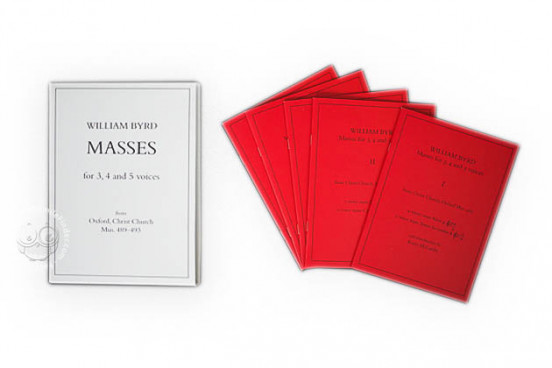William Byrd's Masses for 3, 4, and 5 voices are among the most recognisable works in the sacred Tudor repertory. Byrd (c. 1540-1623) composed these three versions of the Latin Mass and published them as small pamphlets, lacking the extensive introductory content typically found in his other works. Absent were title pages, dedications, and publication dates; the sole identifier was W. Byrd's name printed at the top of each page. Byrd's printer, Thomas East, utilized intricately designed initial letters made from durable, yet gradually deteriorating, wooden blocks. By comparing these initials to those in East's other works, a rough timeline for the publication of the masses was established. The mass for four voices was issued first in 1592–93, followed by the mass for three voices in 1593–94, and the mass for five voices in 1594–95.
We have 1 facsimile edition of the manuscript "Masses for 3, 4, or 5 Voices by William Byrd": William Byrd: Masses for 3, 4 and 5 Voices facsimile edition, published by DIAMM, 2012
Request Info / Price
